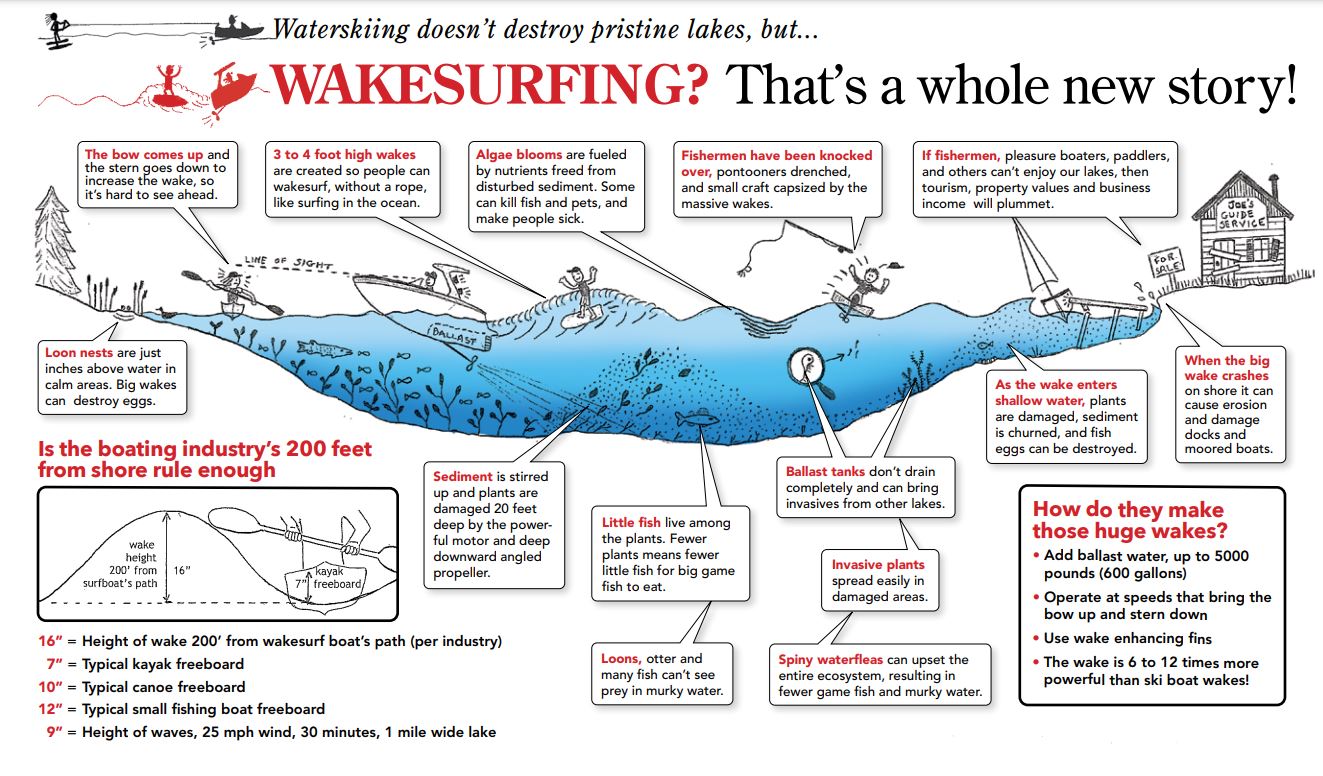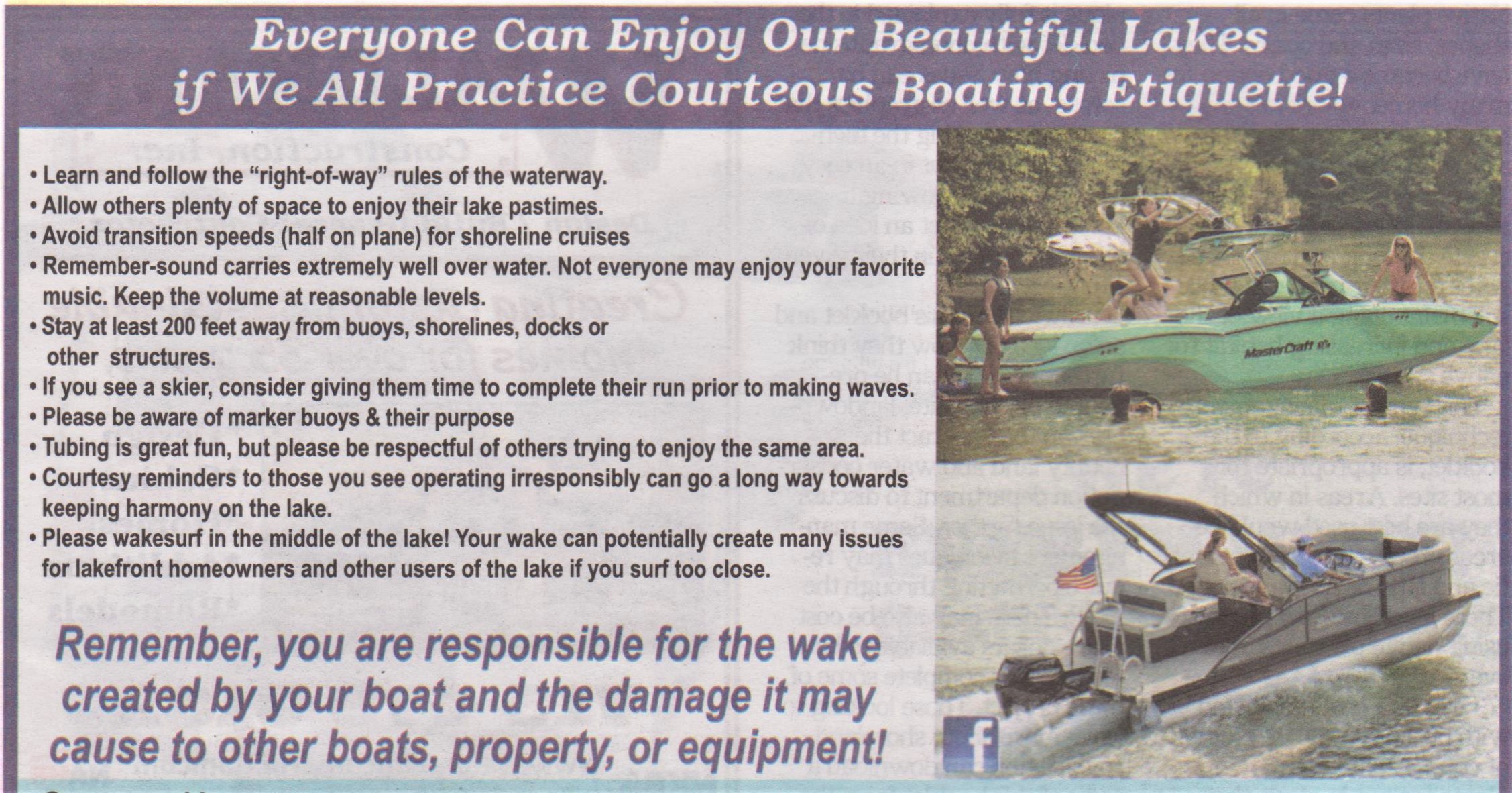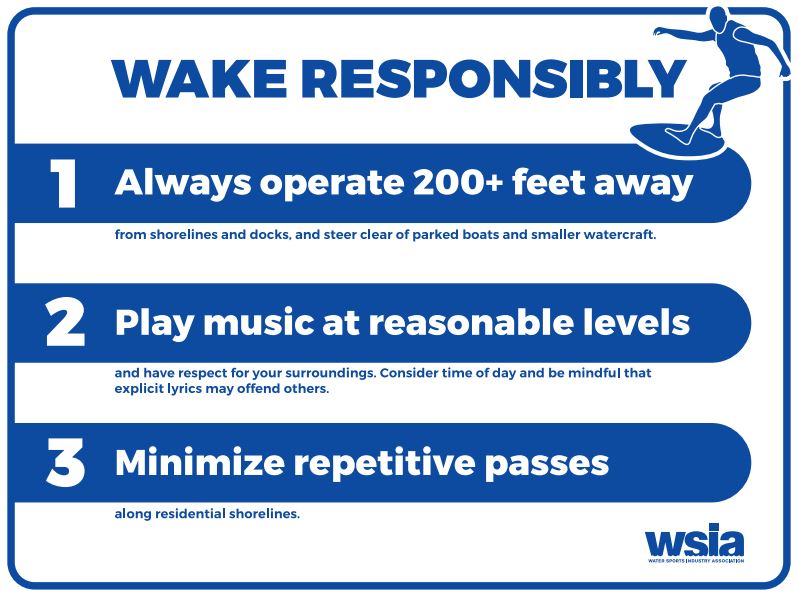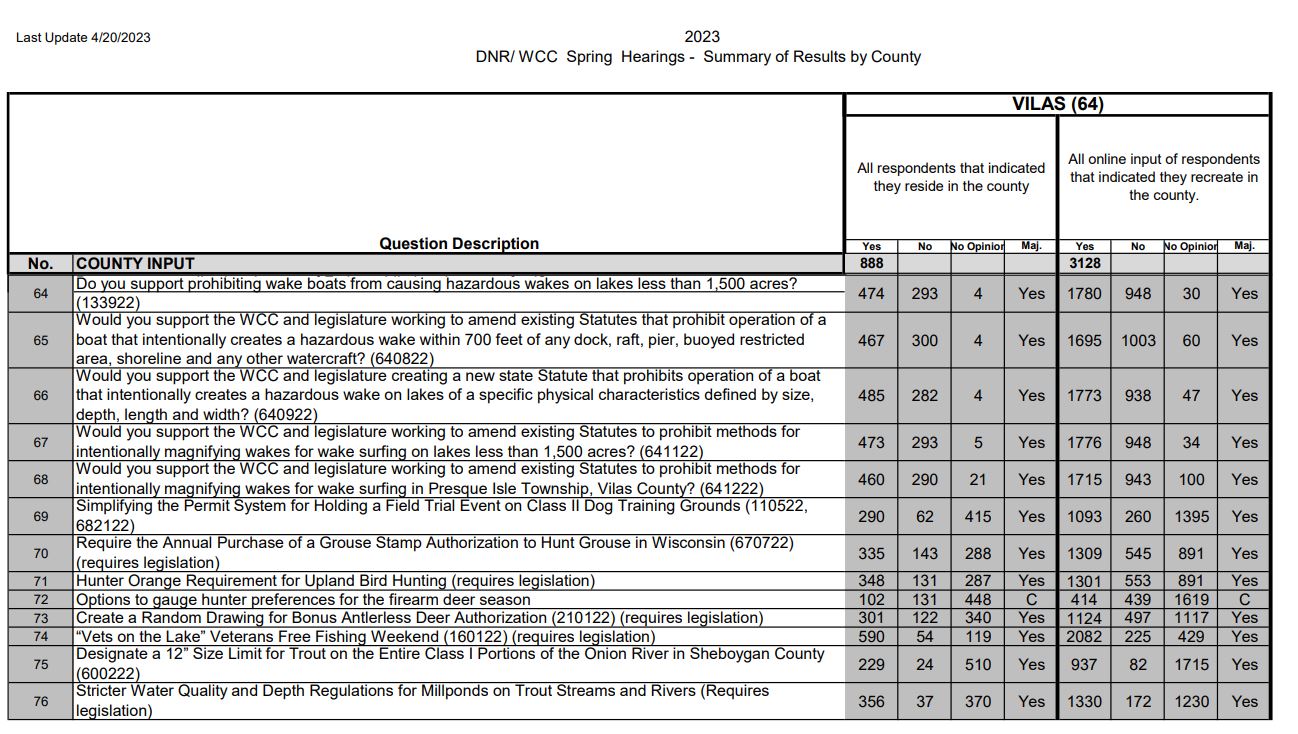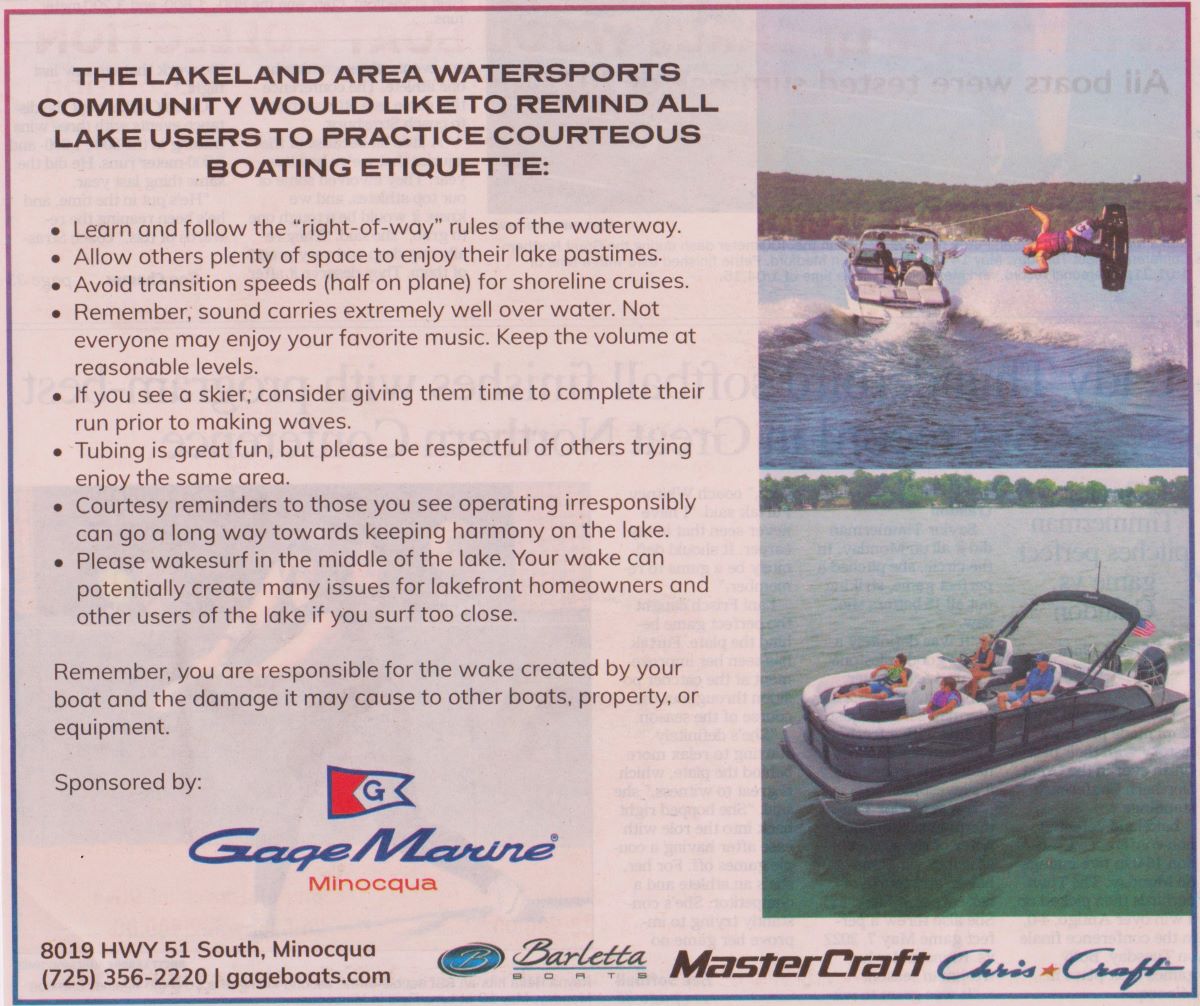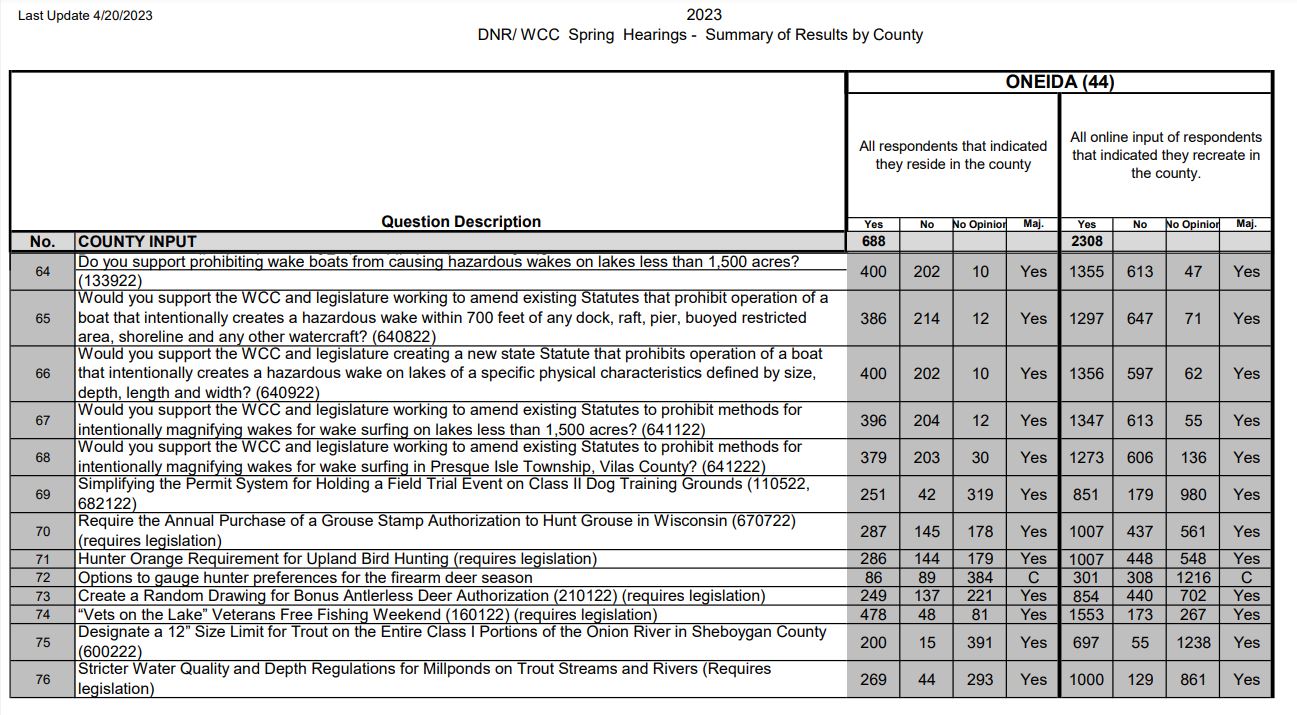Wake & Surf
It is surfing on a massive boat wake, close behind the boat, without using a rope.It needs to be done in deep, large lakes to avoid damage. The waves can be 3 to 4 feet high. Note that the type of boat used to make these waves is totally different from a ski boat. Wake surfing boats plow the water at about 10 mph, unlike waterskiing boats, which ride on a plane to avoid big wakes.
The massive wakes can capsize canoes, kayaks, stand up paddle boards, other boats and water skiers. While surfing, the bow of the boat is so high it can be hard for the driver to see a boat in front of them; this is clearly dangerous. The high wakes can crash against shorelines, damaging docks and moored boats. When surfing, the propeller can be 4’ deep and at a downward angle. The propeller wash can stir up sediment, and damage or uproot vegetation, impacting the lakebed greater than 20’ deep. When sediment is stirred up, many species including loons are unable to locate their food sources. We love our loons. Loons’ eggs are inches above the water; large wakes can wash away these eggs. Phosphorus freed from the lake bottom can fuel algae and bacteria blooms, creating fish kills and noxious odors. Extensive algae blooms in small lakes may impact home values.
Wake boats carry thousands of pounds of lake water as ballast. Numerous studies show that even after emptying the tanks, there is still an average of 8 gallons of lake water in the ballast compartments. Invasive plants and organisms can survive many days in the tanks, only to be released into the next lake. Aren’t there already laws protecting us and our lakes? Wisconsin’s hazardous wake statute 30.68 protects people and property. If wakes damage your shore, boat or dock, and you can prove which boat did it, that statute may help.
No state law protects the environment of the lake from damage by massive wakes, prop wash or invasives transfer because of wake surfing.
If swimmers, water skiers, anglers, pleasure boaters, kayakers and others can no longer enjoy our lakes, then tourism, property values and local business income may suffer.

